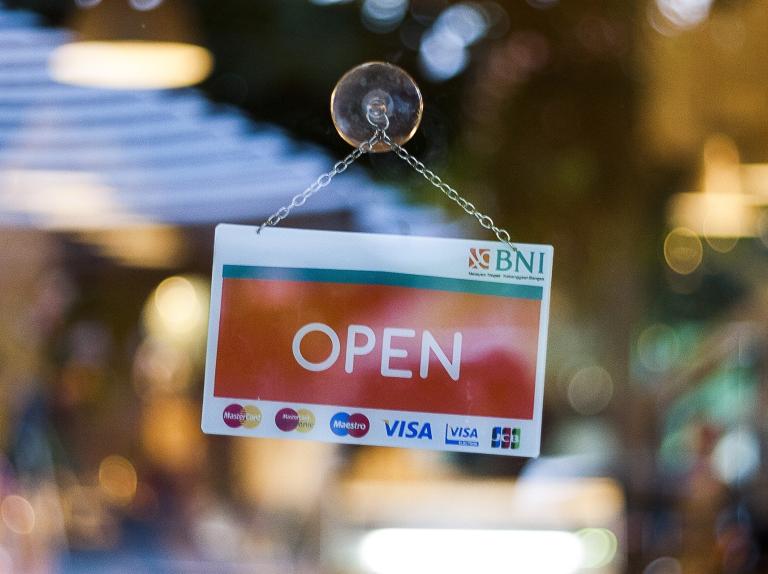
By Gabriel Seder, Destinations International
Tourism, hospitality, and the service sector were among the first industries to be hit by the global coronavirus pandemic. Businesses in the travel industry are among the hardest hit as the crisis continues to play out in destinations around the world.
Small businesses account for over 80% of all travel industry businesses. It is difficult to estimate the number of small businesses at risk, however, the sharp rise in jobless claims this month indicate the pain the industry is feeling as it cuts costs by laying off workers. The Labor Department reported last week that over three million Americans filed for unemployment in the previous week, with the travel and hospitality sectors disproportionately affected—and that number almost certainly underestimates the scale of layoffs across the industry. A U.S. Travel Association/Tourism Economics report published on March 24 projects that the travel industry will shed 4.7 million jobs in the second quarter in the United States alone.
Economic Injury Disaster Loans
Destination organizations should become familiar with the Small Business Administration’s (SBA) Economic Injury Disaster Loan (EIDL) program. The program is the federal government’s lifeline for small businesses whose cash flow is interrupted following the unexpected. When members, partners, and small businesses in your destination need cash to stay afloat, this program is one of the surest avenues for financing.
Under normal circumstances, the EIDL loan is only available to small businesses operating in a declared disaster area. However, due to the global nature of the Coronavirus crisis, small business owners in all U.S. states and territories are currently eligible to apply for a low-interest loan.
The SBA does not provide the loan. The funds are provided through a credit union, bank, or non-bank lender, however, the SBA will guarantee up to 90% of the loan. The program provides small businesses and non-profits with working capital up to $2 million intended to help overcome the temporary loss of revenue. Unlike capital improvement or other loan types, these funds can be used for working capital to pay rent, pay suppliers, or make payroll.
The interest rate on the loans is fixed at 3.75% for small businesses and 2.75% for nonprofits. The loan terms vary on a case-by-case basis depending on the borrower’s ability to repay, with a maximum loan term of 30 years.
Under the CARES Act, the federal stimulus and economic relief package signed into law on March 27, small businesses are also eligible to receive a $10,000 advance on the loan for emergency capital. Under this legislation, small businesses tax-free forgiveness on the loan equal to eight weeks of payroll and other operating expenses.
Businesses can apply for Economic Injury Disaster Loans online through the SBA’s website. More information is available here.
Other Programs Provided Through the CARES Act
This month’s federal stimulus legislation includes several new lending mechanisms for the SBA to provide financing to small businesses impacted by the pandemic. These include:
- SBA’s Business Interruption Loan. Also called the Paycheck Protection Program, this allocates $350 billion in loans and loan guarantees for small businesses and 501c(3) nonprofit organizations. Funds are delivered through community banks and credit unions. Loans must be $10 million or less and can be used to cover the costs of payroll, group healthcare benefits, and other operating expenses from February 15, 2020, through June 30, 2020. More information and eligibility criteria are available here.
- SBA’s Express Loan. This program provides up to $1 million in emergency financing to small businesses, delivered through local bank partners. Nonprofit organizations and businesses doing more than $7 million in revenue are typically ineligible for this loan. Through the express loan program, applicants are notified of their approval or denial for the loan within 36 hours of submitting their applications. More information and eligibility criteria are available here.
- Debt relief for existing SBA Loans. Under this provision, the SBA will pay all principal, interest and fees for six months on existing SBA-backed loans that small businesses are carrying. Specific rules and regulations for this program are still being determined, but more information is available here.
U.S. Travel has developed an Eligibility Guide indicating which relief programs your organization may qualify for, whether you’re a small, medium, or large business, a nonprofit organization, or a political subdivision. The Eligibility Guide is available here.
Emergency Funds for Destination Organizations
The CARES Act provides $454 billion to eligible businesses, states, and municipalities through a program called the Emergency Stabilization Fund. This will include secured loans through banks and other lenders, and direct loans made through the Federal Reserve. Lawmakers have yet to release the details for how these funds will be allocated.
As the legislation is written now, these funds may be made available for 501(4)3, 501(c)6, 501(c)7, and other nonprofit structures, as well as political subdivisions, states, and municipalities. This would suggest that funding may become available for destination organizations, depending on how they are structured. However, while eligibility is broadly defined, there are no requirements for the Treasury or Federal Reserve to establish programs for which all eligible entities qualify.
Specific lending mechanisms and application criteria through the Emergency Stabilization Fund are expected shortly. More information about this program is available here.
Contact the Small Business Administration
The SBA maintains a disaster assistance customer service center. They can be contacted by phone at 1-800-659-2955 or by e-mail at [email protected]. More information about the SBA’s various Coronavirus loans and resources is online at https://www.sba.gov/page/coronavirus-covid-19-small-business-guidance-loan-resources.


